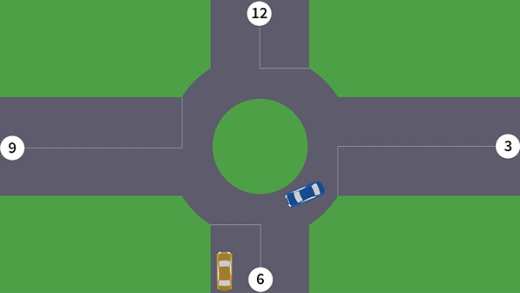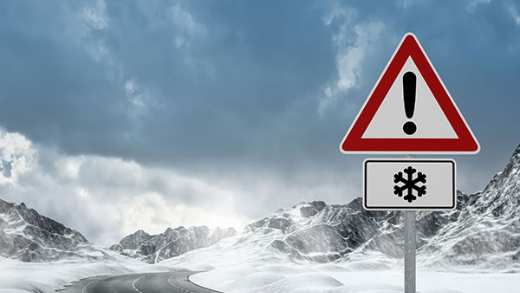With that cool, crisp feeling in the air and a frosty look to everything around you, winter can be a lovely time of year. However, with all the nice aspects of winter weather come those that you have to be wary of; driving conditions deteriorate during the colder months, and while there is nothing you can do about this, there is plenty you can do to make sure that you and your car are prepared for the poorer road conditions.

Winter Ready Car Tips
With the poorer road conditions in mind, we have prepared the ultimate guide to make sure your car is winter ready.
The cold temperature affects the components of your car in different ways so it’s important to be aware of what to look out for before you start each journey.
Check your lights and bulbs
Check that all bulbs on your car are clean and working correctly, including indicators, brake and fog lights. Keep spare bulbs in your glove compartment in case your current lights fail during a journey.
Fuel tank
Ensuring your fuel tank is topped up will help to prevent condensation from forming. Condensation turns to water in your tank and fuel lines and when the temperature drops it’s at risk of freezing. We recommend keeping your tank at least half full at all times to lessen this risk.
We’ve got some tips on how to survive an unexpected breakdown, just in case. Don’t forget, with Aviva car insurance, breakdown rescue cover comes as standard on your policy so we’ve got your back 24/7 should it happen to you.
Windscreen and wipers
Be sure to check for any damage or cracks caused by small stones flying onto your windscreen. These can be a distraction when driving and impair your vision. Including comprehensive car insurance in your insurance policy will help cover you in the event of windscreen damage or repairs.
If there’s frost and snow on your windscreen, use an ice scraper and de-icing solution. Do not use boiling hot water as this may crack your windscreen.
Windscreen wipers should be replaced about once a year to maintain optimum performance. In very cold weather, don’t add water to your screen wash concentrate, as it can freeze both in the washer nozzles and on your windscreen.
Tyre pressure and depth
To ensure tyre safety, you are advised to never let your tyre tread depth go below 2mm – but during the winter months it is recommended to increase this to 3-4mm. This depth will dramatically improve both steering and braking in your car during these less favourable road conditions. It’s equally important not to over-inflate your tyres as this can cause them to slip across the road surface rather than grip it.
Another piece of advice when it comes to tyres is to invest in winter car tyres to help you drive in frost and snow.
Oil levels
In cold weather, engine oil thickens which makes it harder for your engine to start. Engine oil that has a lower viscosity (is thinner) makes it easier to start your engine in cold weather, it also reduces fuel consumption. Check your manufacturer’s manual to see what is recommended for your vehicle and ensure to top up your oil regularly.
Coolant
Coolant, or antifreeze, works to control the temperature of the fluids and various engine parts in your car. This way it ensures your engine doesn’t freeze or overheat. These days, most cars use long-life antifreeze, and it is of vital importance you don’t mix these with other types of antifreeze as they can damage your engine.
Speak to your car dealer or mechanic if you are not sure which antifreeze is in your car.
Door locks and seals
Use WD-40 on car locks regularly during cold weather to prevent freezing. Polish or lubricant such as Vaseline will work to prevent the rubber seals of your car doors from freezing.
Driving in ice and snow
When it comes to driving on icy or snowy roads, there are some extra considerations to keep in mind:
- Keep your lights on at all times, including during the day.
- Take off in second gear to avoid wheel spin.
- Drive in the highest gear possible, and at a very slow speed when on flat ground.
- Accelerate and brake very gently and gradually to avoid your car skidding.
- When driving downhill, use third or fourth gear. When turning a corner use a lower gear.
- If your car is an automatic, take a look at the manual override function. This will enable you to select the right gear to avoid braking as it can lead to skidding.
- In icy and snowy conditions, stopping distance can be increased tenfold so keep this in mind. When stationary in traffic, be sure to leave a distance of at least one car length between you and the car in front.
- Never overtake on icy or snowy roads.
- Be particularly careful of roads in shaded areas, either by trees or buildings. It’s in these areas that black ice can often be found, as sunlight cannot reach them.
Car battery health in winter
Follow these simple tips to maintain your car battery health and avoid getting left out in the cold this winter if your car breaks down:
- At the end of a journey ensure the lights, wipers and heater are all switched off as this prevents any unnecessary drain on the battery the next time you start the car.
- Avoid using heaters, heated windscreens and heated seats for longer than you have to. Some satnav, in-car DVD players and iPods can also drain the battery if left connected.
- Check that there are no interior lights, including boot lights, left on when getting out of your car.
- If you can, park your car in a garage, especially in very cold temperatures.
- When parked up with the engine off, don’t leave the ignition with the heater or demisters on because this will flatten the battery.
For more car battery maintenance tips, we’ve got you covered.
Winter Driving Emergency Car Kit
Before setting off on any journey it’s a good idea to keep some essentials stored in your car. These essentials are even more important in the winter months and will be of use if you experience a breakdown.
- High-vis vests
- Reflective warning triangles
- Cones
- Ice scraper
- Small shovel
- Jump leads
- Flashlight
- AA Batteries
- First-aid kit
- Multi-tool and window breaker
- Antifreeze
- Cloth
- High energy snacks
Contact Aviva today for more tips on winter driving. Get a 15% car insurance discount when you buy your car insurance online.1
















